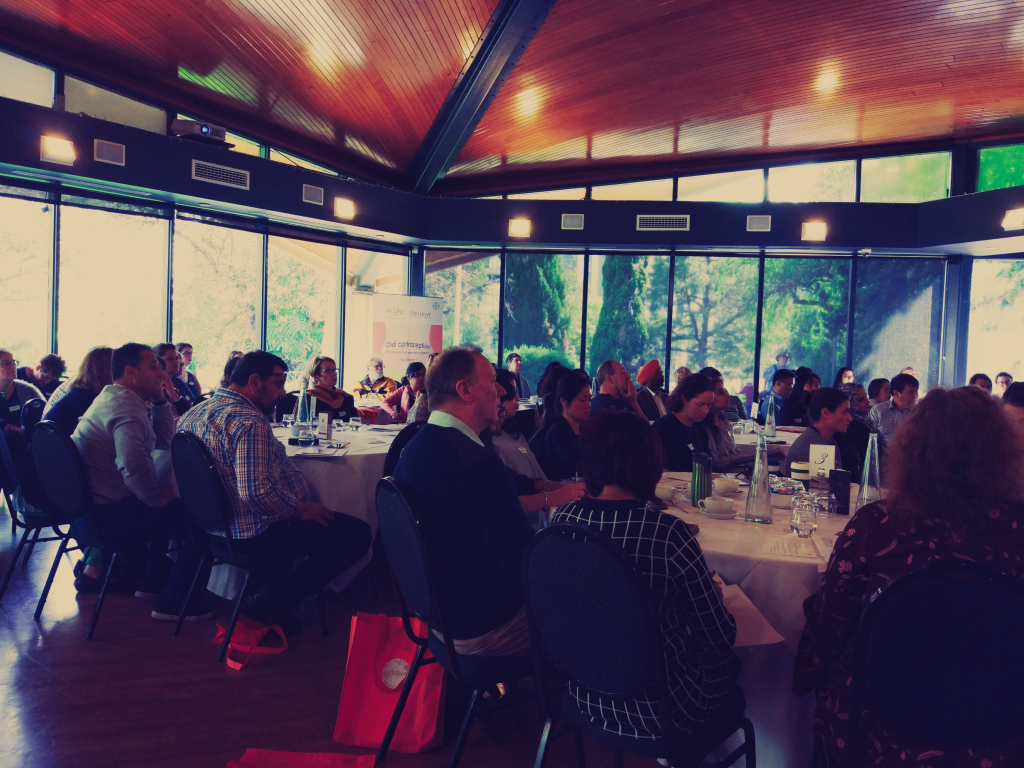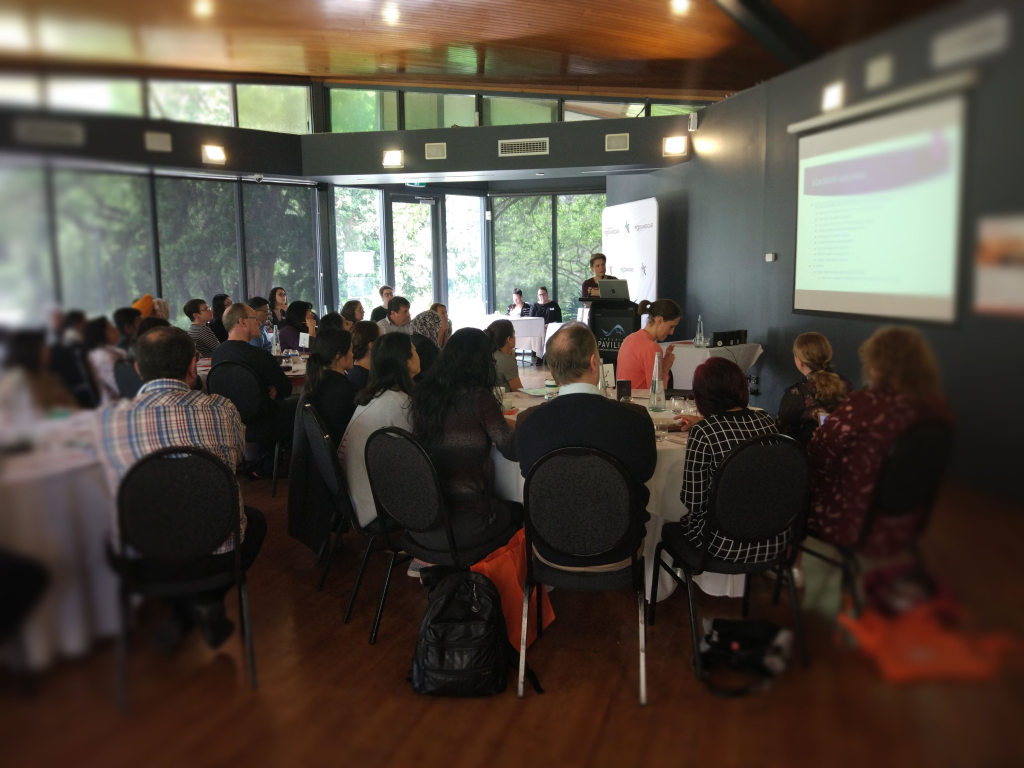Obstetric Shared Care Newsletter | Summer

Targeting Perinatal Mental Health
In recognition of the recent Perinatal Anxiety & Depression Awareness (PANDA) Week, the ‘Talking Women’ article for Medical Observer focuses on this important area of women’s health. Finkel Professor of Global Health Jane Fisher explains that perinatal anxiety and depression is temporary and treatable. To find out more, please download the article.
Perinatal Mental Health Workgroup
Keeping GPs in the Loop – Dr Michelle Emmerson
Post-natal mental health difficulties affect at least 25% of women and we are all aware that these patients are seen in General Practice. Unfortunately, the services for women with perinatal mental health difficulties in South Australia are inadequate. This year a SA Health Working Party focussing on Perinatal Mental Health has been formed. The working party is chaired by Psychiatrist Dr Anne Sved Williams and GP Partners is pleased to be part of this working group.
The working group has identified many gaps and issues in ensuring services for these women and their families are available. The development of pathways to better support on-going training for general practitioners with a special interest, and or postgraduate training in perinatal and infant mental health (or general mental health care) has been highlighted as part of the solution. The findings as a result of this working group are in draft form at present.
Obstetric Shared Care: Updates for GPs
2019 Rural CPD Event – Victor Harbor
This year our Rural CPD event was held at the McCracken Country Club, Victor Harbor and titled “Pregnancy What’s Next?”
We also provided a protocol update during the evening.

The evening was well attended with a lively question time prompting relevant discussion.
An important take home message is that our Obstetric Shared Care program is based on the PPGs (South Australian Perinatal Practice Guidelines). Click on this link to download a copy.
GPEx – ‘A Day in General Practice’
The GP Obstetrics Shared Care program has collaborated with GPEx and participated in a series of workshops attended by Registrars. The aim was to offer the Registrars an insight into becoming an Accredited Obstetrics Shared Care GP and how to manage that first ante-natal consultation.
A total of four workshops were held in Adelaide.
We were delighted with the positive feedback and more so with the many enquires at to the process of becoming an Accredited GP Obstetric Shared Care provider.
Clinical Refresher: Updates for GPs
The GP Obstetric Shared Care Clinical Refresher Day was held at the Adelaide Pavilion on Saturday 20th October 2018.
We were absolutely delighted with the number of GPs that attended on the day and we were treated to a great range of topics and excellent speakers. It was lovely to receive so many emails expressing thanks for such an informative, educational and enjoyable day.
Dr Jenni Goold has prepared a summary of the take home messages from the day.
Hypertension in Pregnany
Hypertension in pregnancy is defined as a blood pressure greater than 140/90 after 20 weeks. It is however still important to note if the BP rises 30/15 above booking BP.
The BP must be measured seated with feet on floor. The guidelines say to take on the right arm, but SOMAZ has recently stated left.
Hypertension in pregnancy is classified as:
- PE/Eclampsia
- PE superimposed on hypertension
- Gestational hypertension (after 20 weeks and resolved within 3 months)
- Chronic hypertension
- White coat syndrome
Appropriate investigations include:
- Urine specimen tested for protein (1-2 x/week)
- PE bloods FBE, EUC/LFT weekly
- Ultrasound for AFI and dopplers 2-3 weeks and growth 3-4 weekly to assess impact on pregnancy and fetes.
Low dose aspirin is used from less than 12 weeks to 36 weeks in women with previous history or risk factors and there is some suggestion taking it at night is more beneficial.
If treating BP then aim for 140-160/90
Management of Diabetes in Pregnancy
Pre-gestational diabetes 1-2 % of pregnancies
GDM (Gestational diabetes) rates in first and second trimester are on the increase.
Associated risk is chronic hypertension
Importance of pre-conception control cannot be emphasised strongly enough.
HbA1C < 7 % in the first trimester and < 6% in the second trimester
It is important to address weight, BP, smoking/alcohol/other drugs, Folic Acid and mother’s medications- such as starting an ACE, need to be stopped and change to appropriate antihypertensives e.g. methyldopa and nifedipine.
Treatment of diabetes in pregnancy is diet, Metformin and Insulin
For monitoring BSL to be checking fasting and 2 hours post prandial
Aspirin is not currently recommended in GDM. If there is any vascular component to the disease then add low dose aspirin
How to know when to start treatment?
- If 2 x increase above range at same test period in 1 week e.g. 2 elevated levels after lunch, need to review diet, exercise, then treatment.
A full 75gm Glucose Tolerance Test (GTT) is now required for all woman at 26-30 weeks. If women meet the high-risk criteria the GTT is to be performed early, from 12-16 weeks and if results are normal, repeated at 26-30 weeks. The diagnostic criteria are stated in the South Australian Pregnancy Record. An early GTT is required if a pregnant woman has 1 high risk factor or 2 moderate risk factors.
- Do not send your patients for a GTT at 8-12 weeks

Maternal Serum Screening
Offer screening for fetal anomalies to all pregnant women so they have options. Prevalence of anomalies 2-3% and in SA 2.8%.
Currently in excess of 80% women screen. Screening does not give yes/ no answer and remember low risk does not mean no risk!
Likewise, with an increased risk result, 96% of these women will have a normal karyotype. To ensure best result, full in ALL details on SAMSAS form.
Timing is important – bloods 9 to 14 weeks (optimal 10 to 12) and scan 11- 14 weeks (optimal 11-13)
Low PAPPA<O.37 MoM and is associated with poorer pregnancy outcomes. NT>= 3 mm is abnormal. The scan is also very good at picking up structural issues.
NIPT (Non-Invasive Prenatal Testing) is not a replacement for the MSS – still important to do 11-12 week scan and bloods from 9 weeks. NIPT has been discussed in previous newsletters extensively.
NIPT still considered a screening test. Cost is approximately $460.00, and options are Harmony (via Clinpath, Adelaide Women’s Imaging, Specialist Imaging Partners) or NEST (via Repromed)
Medications in Pregnancy
The key message here is unless contraindicated don’t stop without checking.
Key to not stop asthma medication or Antidepressants without checking. There are various online resources and WCH Drug Information Service.
The WCH Pharmacy staff can also assist you with drug information and advice via e-mail, please click on the following link to get in contact SA Pharmacy Medicines Information Service.

We are excited to announce that we have recorded a Podcast with Dr David Ross. Dr Ross gives a very useful talk about Thalassaemia Investigations and Testing in Pregnancy and we will make this available for downloading late December 2018
Podcasts – Coming Soon to our Website
Dr Ross trained in clinical and laboratory haematology at the Royal Adelaide Hospital and the IMVS, spending one year at Addenbrooke’s Hospital in Cambridge. In 2009, he was awarded a PhD for his thesis on the subject of minimal residual disease in chronic myeloid leukaemia. In 2009, he joined the Haematology Department at Flinders Medical Centre, where he is responsible for diagnostic haematology services. He is currently based at SA Pathology.
Breast Feeding Course
It’s just breastfeeding – How did it get so complicated?
To provide Obstetric Shared Care in South Australia over 20 weeks, GPs must be accredited in the GP Obstetric Shared Care program.
DOWNLOAD AN APPLICATION FORM TO JOIN THE PROGRAM
We’ve Listened to your feedback…
In 2019 we will be offering you CPD Events, Podcasts and Webinars with greater relevance and interactive opportunities!
All CPD events with GP Partners Australia are free of charge and accredited with RACGP and ACRRM.